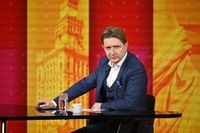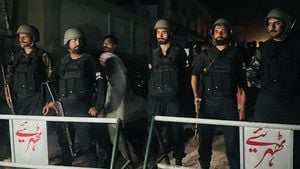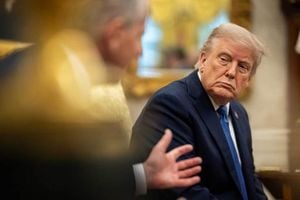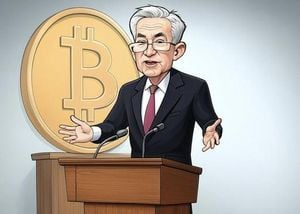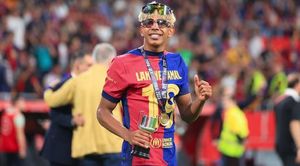In a high-stakes political debate on April 28, 2025, Artur Bartoszewicz, an independent candidate for the Polish presidency, faced off against his opponents in a forum hosted by the tabloid "Super Express." The event marked a significant moment in the lead-up to the upcoming elections, where Bartoszewicz’s performance drew mixed reactions from the audience and commentators alike.
Bartoszewicz, 51, an economist and lecturer from Suwałki, has been vocal about his radical right-wing policies and plans for Poland. During the debate, he posed a series of long and intricate questions that some observers felt overshadowed the responses from his rivals. His inquiries included a challenging proposal regarding the funding of political parties, asking Karol Nawrocki, a candidate supported by the ruling Law and Justice party (PiS), whether he would consider transforming state subventions into a deduction from personal income tax (PIT) for political parties.
In response, Nawrocki acknowledged Bartoszewicz’s status as an independent candidate but hinted at the complexities of the proposal, stating, "Your suggestion is interesting to consider. I won’t commit to anything right now." This exchange highlighted the ongoing debate about public funding for political parties in Poland, a topic Bartoszewicz has made central to his campaign.
Another contentious point raised by Bartoszewicz was regarding the role of the Konfederacja party in addressing issues related to party members and their families working in State Treasury companies. He questioned party leader Sławomir Mentzen about potential reforms in this area. Mentzen responded defensively, asserting that accusations against his party were unfounded and emphasized that they had yet to govern, thus could not be held accountable for past failures.
The debate was not just an opportunity for Bartoszewicz to challenge his opponents but also a platform for him to outline his vision for Poland. He advocates for a return to traditional national symbols and values, proposing the restoration of the national coat of arms from 1919-1927 and suggesting that the Polish anthem should be "Rota." His campaign is rooted in a desire for what he describes as a "national advancement" and a patriotic education system.
At a recent meeting in Młoszowa, Bartoszewicz gathered nearly 100 supporters at the Lech motel, where he emphasized the importance of grassroots support for his campaign. His background as an economist and lecturer at the Warsaw School of Economics lends him credibility as he discusses complex economic policies. He argues for eliminating state funding for political parties, proposing instead that citizens could voluntarily contribute through tax deductions.
Bartoszewicz's platform, dubbed the "three sevens," includes a variety of proposals aimed at transforming Polish governance and society. His first set of proposals focuses on reducing the partisanship of the state, ensuring that the number of parliament members correlates with the population of Poland, and establishing accountability measures for politicians and government officials.
During his speech, he encouraged attendees to engage their friends and family in discussions about his policies, urging them to envision Poland's future under different leadership. "Close your eyes for a moment and imagine Poland in five or ten years. If Trzaskowski or Nawrocki were president, would you want to see the same chaos we have today?" he asked, provoking thought among his supporters.
As an independent candidate, Bartoszewicz faces unique challenges in the political landscape of Poland, where party affiliation often dictates electoral success. His radical right-wing stance, including calls for full access to firearms and a focus on national pride, positions him as a controversial figure among mainstream candidates. However, his supporters appreciate his straightforward approach and commitment to addressing issues they feel are neglected by traditional parties.
Bartoszewicz's educational background is notable; he holds a doctorate in economics and has extensive experience in public policy, having worked with governmental and non-governmental organizations on various economic initiatives. His academic credentials and professional history give him a platform to advocate for significant reforms, including a strategic program for the development of artificial intelligence and nuclear energy in Poland.
As the election draws nearer, the debate performance and public meetings will be critical for Bartoszewicz's visibility and support. His ability to articulate his vision and connect with voters will determine whether he can translate his ideas into electoral success. The upcoming weeks will be crucial as voters assess the candidates and their proposals, with Bartoszewicz's radical ideas likely to spark further discussions.
In a country still grappling with economic and social issues, Bartoszewicz's candidacy represents a call for change that resonates with a segment of the electorate. Whether his vision for a "great and proud nation" can gain traction remains to be seen, but his commitment to addressing the concerns of ordinary Poles is clear.
